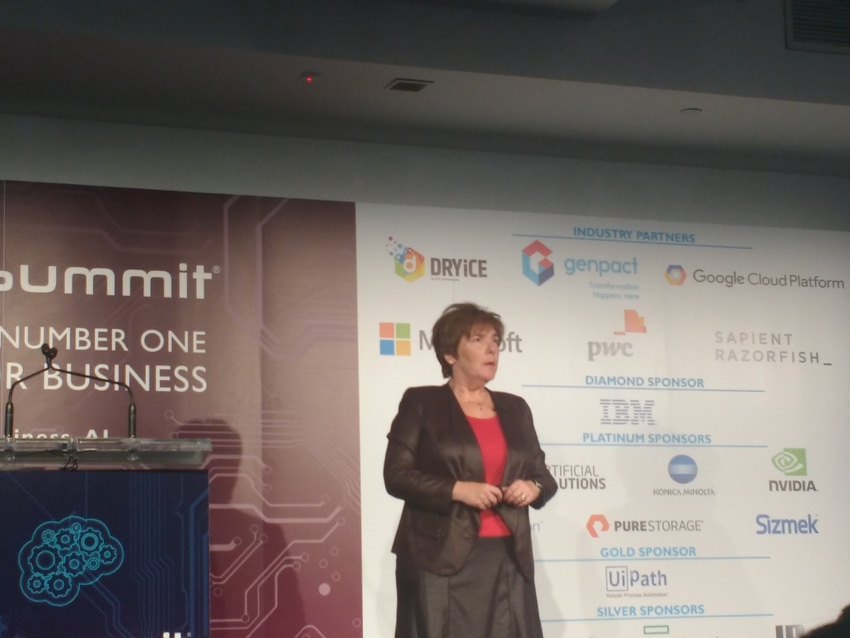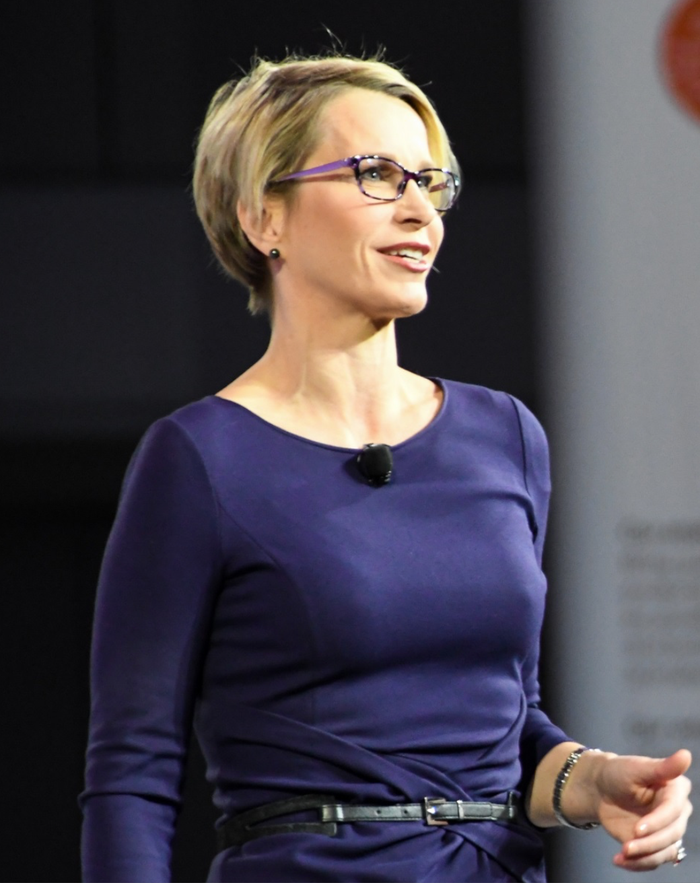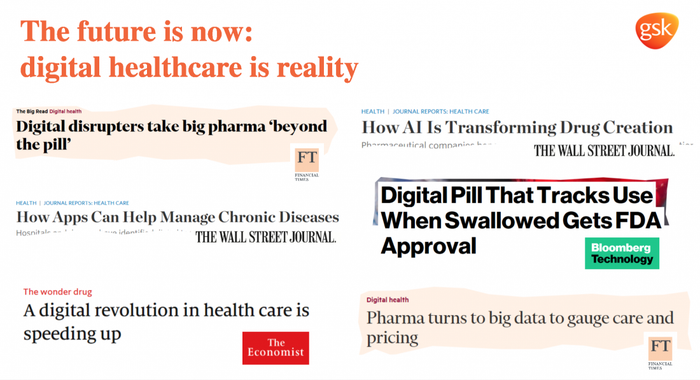Modern Healthcare: A Journey From In Vitro To In Silico
December 5, 2017

This week's AI Summit NYC welcomes senior speakers from across industries and enterprises to Metropolitan West, bringing together experts at the forefront of both the business and technology world. AI Business will be providing live, up-to-the-minute highlights and coverage throughout the day. To find out more about the AI Summit, click here.
[caption id="attachment_9330" align="alignnone" width="560"] Karenann Terrell, GlaxoSmithKline's first Chief Digital and Technology Officer[/caption]
Karenann Terrell, GlaxoSmithKline's first Chief Digital and Technology Officer[/caption]
Beyond technological innovation, AI represents a huge paradigm shift. Nowhere is this clearer than in healthcare, as Karenann Terrell demonstrated in what was her first speaking role as Chief Digital and Technology Officer for GSK - her opening keynote address at The AI Summit NYC.
From drug discovery to frontline patient care, Terrell outlined clearly the ways in which GSK plan to use AI and new technologies to transform how health is not only managed, but conceptualised - from an 'in vitro' model of health provision to context- and data-rich 'in silico' healthcare.
“I think some might be surprised to see me at all at the AI Summit NYC, as healthcare has generally been behind the curve on adopting new technology," Terrell admitted in an interview with AI Business last month. "They are soon going to learn that GSK recognizes this, and is leading in many parts of the industry with regard to technology. We are prepared to take on the challenge through experimenting with learning cycles and new fresh approaches to life sciences which enable GSK with speed and innovation. Hopefully, they are also going to learn that GSK is a place where, through technology, we can make a real difference – in some cases, a life-saving difference – to our patients around the world.”
"At GSK, AI is of central importance as we think about our digital ambitions," Terrell said. "There is so much news about what's happening in the area, but I don't believe this is hype. AI is actually today changing the consumer world in a way that it is starting to move into the digitisation of healthcare. Our industry will be transformed through the use of digital data and analytics. That's obvious. Every industry is being transformed that way."
Formerly the CTO of Walmart, Terrell joined GSK as the conglomerate's first ever Chief Digital & Technology Officer in September 2017, with a company-wide remit to transform how new technologies are used to improve performance across the organization. She is responsible for GSK's digital, data, and analytics strategy, working with a wide range of partners from inside and outside the healthcare sector to bring new technologies to GSK, enhancing areas such as clinical trials and drug development; improving how we interact with healthcare professional, customers, and consumers; and making internal processes more efficient.
'12 years from bench to bedside'
"With this acceleration of science and technology, we should all expect some material shifts in the way our industry operates, in who our competitors and partners are as we use digital, data and analytics fundamentally to transform the way we discover and develop medicines; the way we interact with patients and consumers and healthcare professionals," argued Emma Walmsley, CEO of GSK.
Indeed, GSK are adopting a multi-technology approach to medical problems. From deploying the Roam platform in HIV medical research, to using VR in pharma manufacturing and AI in drug development, GSK's multi-technology approach to medical problems undoubtedly justifies Terrell's company-wide remit for digital transformation.
[caption id="attachment_9703" align="alignright" width="418"] Emma Walmsley, CEO of GSK[/caption]
Emma Walmsley, CEO of GSK[/caption]
Uniquely, this is underpinned by GSK's perspective of AI as being 'digital as usual'. "It's the use of AI to do what you do, in a better way. It's search reuslts that are smarter. It's the use of data in a way that gets better and better and more predictive, but you are still doing search. In our business, it is the understanding of our molcules and how we use advanced analytics and AI in a digital-as-usual framework. That framework is incredibly important."
This is clearly illustrated by major efficiency gains in the lifecycle of products. "How do you get from a disease state to a drug that can be used in a clinical context as a medicine? There are enormous opportunities in the pre-clinical discovery stage."
"AI in the sense of IoT and VR has a direct meaning for the industrial internet for us on our manufacutring floor," Terrell explained. "Not just to train better but to actually guide training - to actually know, in real time, where the areas of training are needed. Capturing all of that will allow us to very quickly get the medicine to market. This is an area of opportunity where we must apply the information we gain operationally in order for us to join the capability in the visual world with that physical world. It's really about speed to market for medicines - it's really about getting vaccines to market so there is no gap in manufacturing and marketing. It's not as sexy as the use in early discovery, but I guarantee you it is incredibly meaningful to a company manufacturing across 150 different sites."

About the Author(s)
You May Also Like


.jpg?width=700&auto=webp&quality=80&disable=upscale)
.jpg?width=700&auto=webp&quality=80&disable=upscale)
.jpg?width=700&auto=webp&quality=80&disable=upscale)



.jpg?width=300&auto=webp&quality=80&disable=upscale)
.jpg?width=300&auto=webp&quality=80&disable=upscale)